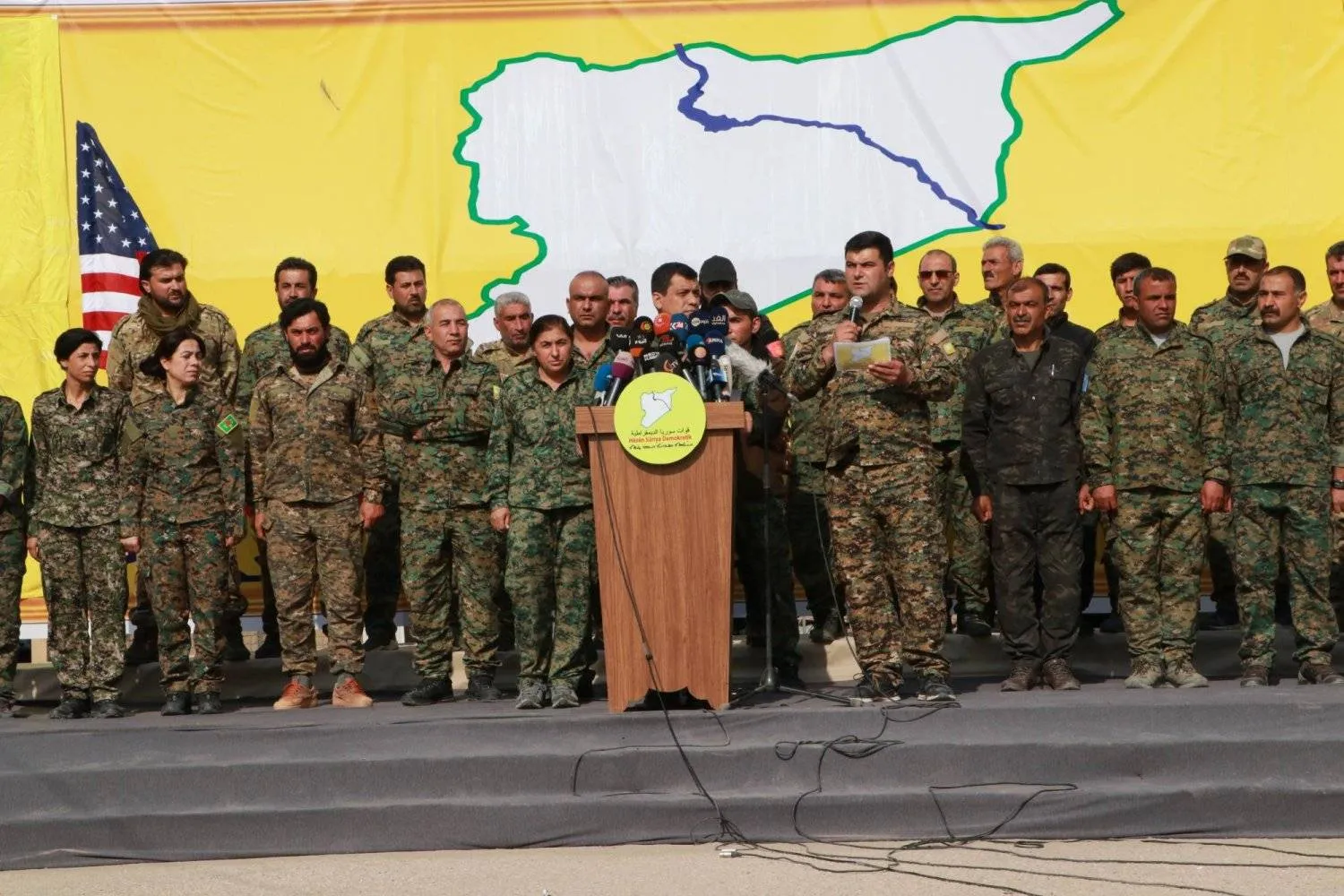The outcome of the US elections has raised concerns for Syria’s Kurds, their autonomous administration, and its military arm, the Syrian Democratic Forces (SDF).
This follows Turkish President Recep Tayyip Erdogan’s renewed threat to launch a military operation against their territories in northeastern Syria.
The situation intensified after the US military targeted Iranian militia positions in eastern Syria on November 13, amid ongoing tensions with Syrian government forces in Deir Ezzor in the east.
Journalist Sherwan Yousef, director of the platform “DeFacto,” told Asharq Al-Awsat that the Turkish threats are not new and are unlikely to be carried out.
He argued that Türkiye is not in a position to launch a ground attack, adding, “With the changes happening in Gaza, Beirut, Tel Aviv, and Tehran, major powers won’t allow more fronts to open and further destabilize the Middle East,” referring to Russia and the US.
Although Türkiye has carried out three military operations in northern Syria in recent years, Yousef warns that any new offensive would cause “massive chaos and displacement,” which the region cannot handle, including Syria, Lebanon, Jordan, and Iraq.
He also noted that the de-escalation agreement between the Trump administration and Türkiye is still in effect. The SDF would resist any attack with “unprecedented force,” having built a large army and received advanced weapons from the US-led international coalition.
Since 2014, northeastern Syria, which has had a degree of autonomy, remains cautious, watching international and regional developments, especially with Donald Trump set to return to the US presidency next year.
Baraa Sabri, a Kurdish researcher at the Washington Institute for Near East Policy, told Asharq Al-Awsat that Syria’s Kurds, the Autonomous Administration, and the SDF need to reassess their relationship with the US and clarify their communication with Damascus and Moscow.









